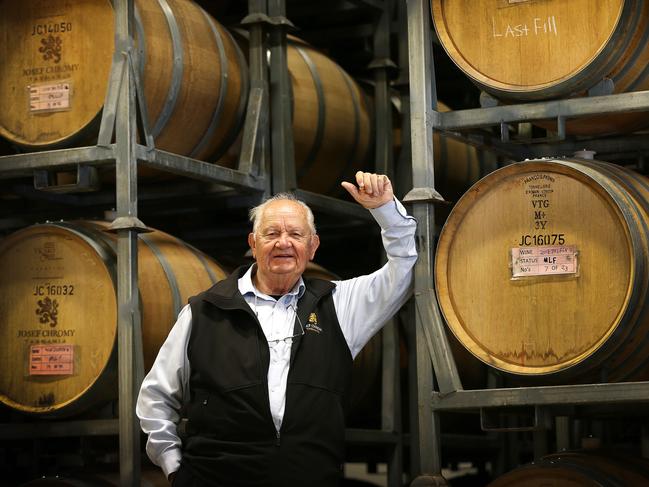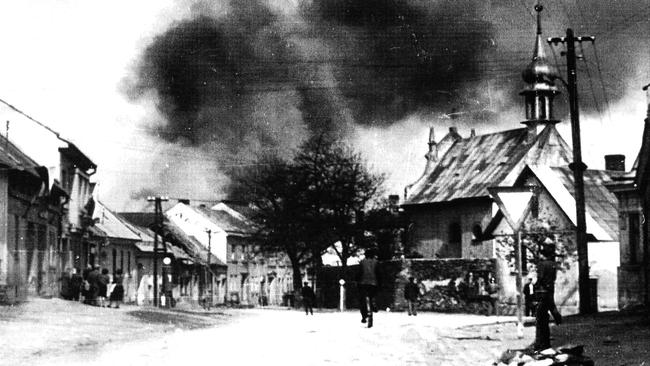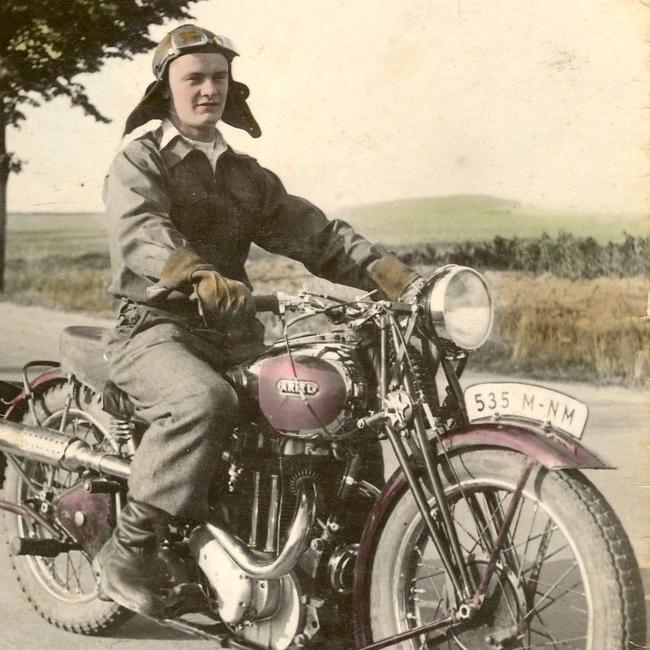Tasmanian food and wine industry leader Josef Chromy celebrates 70 years since fleeing Czechoslovakia
He fled his war-torn home country 70 years ago and made his new home in Tasmania – and he is now a widely respected leader of the state’s food and wine industry.
Tasmania
Don't miss out on the headlines from Tasmania. Followed categories will be added to My News.
JOSEF Chromy is well-known to Tasmanians as an icon in the state’s food and wine industry. However, many aren’t aware of the hardships he faced to get to where he is today.
Sunday marked the day that Mr Chromy fled war-torn Czechoslovakia to start a new life at just 19 years old.
From age eight, he grew up under 11 years of Nazi and Soviet occupation of the country.
After rising up the ranks to become a butcher, he had attained a Master Diploma of Meat Technology in Prague by 19. But communism prevented him from starting his own business, leaving him to see no future for himself.
So he and two friends plotted their escape.
TASWEEKEND: JOSEF CHROMY IS HARVESTING THE DREAM

“Not even my family knew of the plan. If they knew and we were found out, they would have been severely punished,” he said.
They planned to cross into Austria and make their way to the US Occupation Zone.
“The border was covered by minefields and patrolled by Russian soldiers with attack dogs,” Mr Chromy said.
His friends were captured near the border — one was shot and imprisoned, and the other was never heard from again.
In the “terrifying” hours that followed, Mr Chromy boarded a train heading for Vienna.
However the conductor began checking tickets.
I was free! Seventy years later, I still remember the relief that I felt that day.

“I did not speak German, so if he spoke to me, he would realise I was escaping and Russian soldiers would arrest me. I quickly decided to leave my ticket in my top pocket and pretended to be asleep.”
The conductor shook him awake.
“I was scared having just lost my two friends, and froze not knowing what to do. Then I just pretended to be deaf and dumb, moaning and pointing to my mouth and ears,” he said.
In what Mr Chromy describes as a “life-changing moment”, the conductor punched his ticket and moved on.
He arrived in Vienna and found American military police occupying a corner of the city, who then introduced him to a man helping refugees reach the main US Occupation Zone.
After a dangerous journey, on June 14, 1950, he made it.

He had to walk 100km to the refugee camp in Salzburg, but fear of capture was behind him.
“I was free! Seventy years later, I still remember the relief that I felt that day,” he said.
US authorities issued him papers as a political refugee. For five months he lived in privation, then was able to travel to Australia.
Mr Chromy celebrated the anniversary with friends and family, but the occasion was limited due to COVID restrictions.
However, he has big plans for later this year.
“In December I will turn 90,” he said. “And for that celebration, there will be no limits!”


